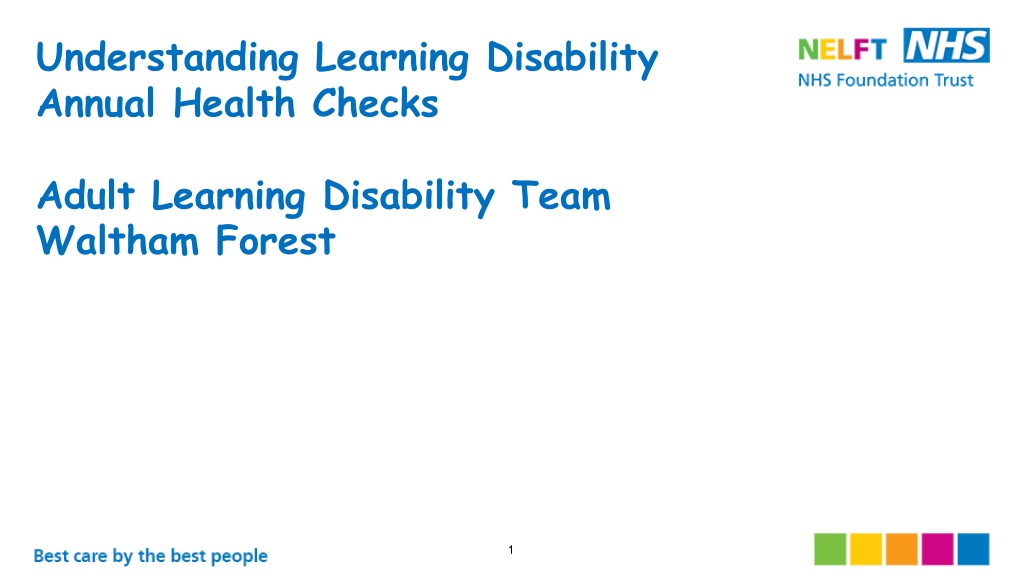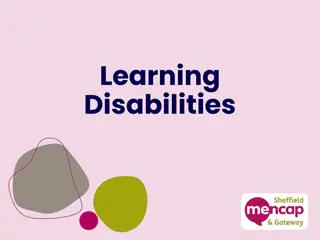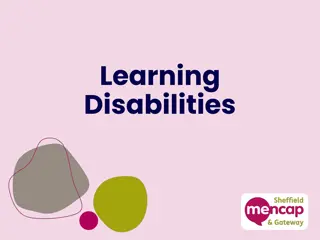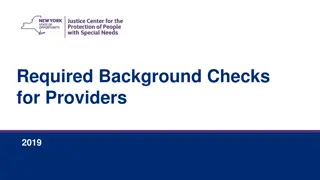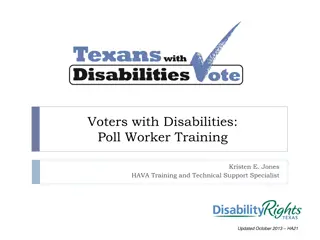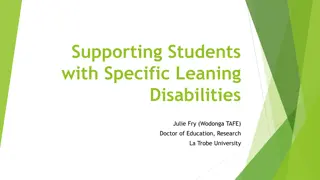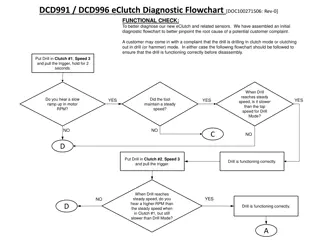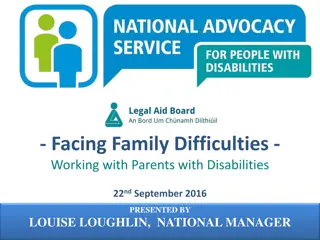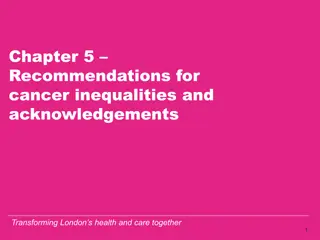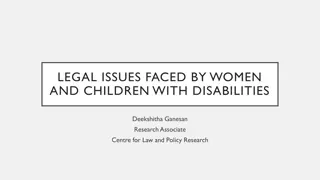Understanding Annual Health Checks for People with Learning Disabilities
Annual Health Checks (AHC) are essential for individuals over 14 years old with learning disabilities to review their physical and mental health. Conducted by GPs or health professionals, these checks help in detecting, treating, and preventing new health conditions. By being on the learning disability register, individuals can ensure they receive the necessary health assessments and interventions. During the health check, professionals conduct physical examinations and address any health concerns the individual may have. Overall, AHCs play a crucial role in promoting proactive health management and preventing serious health issues.
Download Presentation

Please find below an Image/Link to download the presentation.
The content on the website is provided AS IS for your information and personal use only. It may not be sold, licensed, or shared on other websites without obtaining consent from the author. Download presentation by click this link. If you encounter any issues during the download, it is possible that the publisher has removed the file from their server.
E N D
Presentation Transcript
Understanding Learning Disability Annual Health Checks Adult Learning Disability Team Waltham Forest 1
Annual Health Check (AHC) for People with Learning Disability (PWLD) What is a Learning Disability Annual Health Check? It is a yearly check-up for individuals with learning disability It is conducted by your GP or a health professional from your GP practice who had training It takes place at your GP practice or a practice near by Annual Health Checkis to review physical and mental health. 2
Annual Health Check (AHC) for People with Learning Disability (PWLD) Who can have an Annual Health Check? Annual health checks are for people with a learning disability who are over 14 years old and over. People with Learning Disability need to make sure they are on the learning disability register. Doctor s surgery should invite all People with Learning Disability who are eligible for an Annual Health Check each year. You can ask to go on the register if you think you have a learning disability. 3
Benefits of Annual Health Check (AHC) for People with Learning Disability (PWLD) Annual Health Checks helps in detecting, treating and preventing new and unmet health conditions including serious and life-threatening conditions such as cancer, heart disease and dementia. Help provide baseline information against which changes in health status can be monitored. Can prevent unnecessary hospital admissions. Effective in promoting actions to address identified health needs such as vaccinations, blood tests, breast and testicular screening, dental review and vision and hearing assessment. Provide a chance for individuals to ask questions about their health and discuss any treatments or medications they are taking. 4
Annual Health Check (AHC) for People with Learning Disability (PWLD) What Happens During the Health Check? During the health check, health professionals, who have had extra training, will conduct a physical check-up, including checking weight, heart rate, and blood pressure. They will also discuss any health concerns the individual may have. 5
Annual Health Check (AHC) for People with Learning Disability (PWLD) 6
Annual Health Check (AHC) for People with Learning Disability (PWLD) How to Get an Appointment? Adults and young people aged 14 or over with a learning disability who are on the doctor's practice learning disability register should be invited by their doctor to come for an annual health check. If your doctor's practice has not offered you an annual health check, you can ask them if you can have one. If you are having difficulty arranging your annual health check and need extra support, contact your local Learning Disability Team. 7
Annual Health Check (AHC) for People with Learning Disability (PWLD) Reasonable Adjustments The NHS has to make it as easy for disabled people to use health services as it is for people who are not disabled. This is called making reasonable adjustments. Ask your doctor if you need any reasonable adjustments, such as: using pictures, large print or simpler words to say what's happening booking longer appointments or having a carer with you putting an appointment at the beginning or end of the day, if you find it hard to be in a busy waiting room The reasonable adjustments you need should be written down in a health profile or health action plan that the doctor or health professional can use. 8
